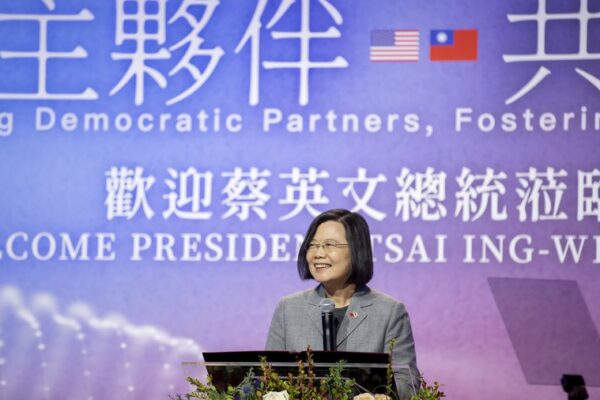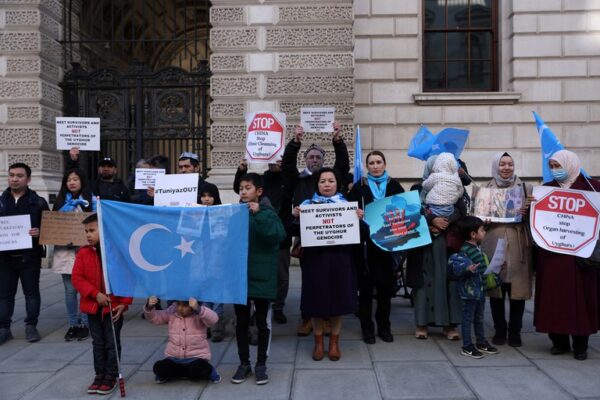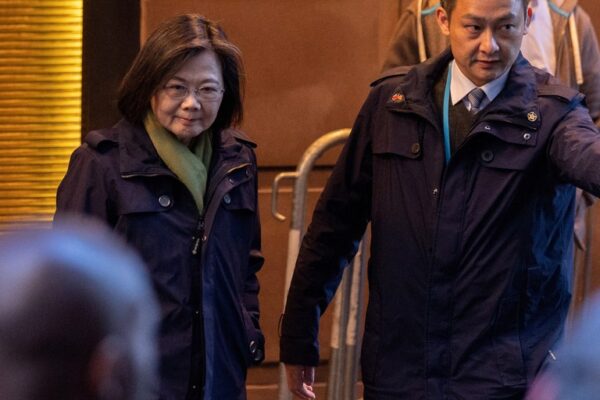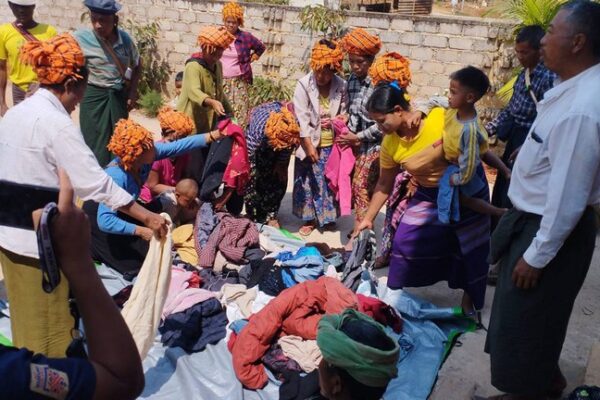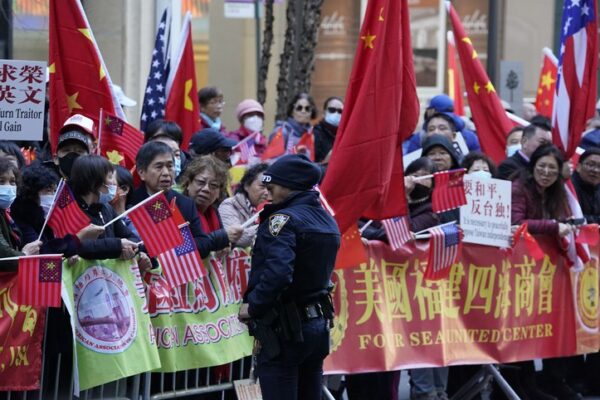
Dried pineapple and meatballs: A president’s favorite snacks
Lisa Cheng Smith’s mom told her learning Chinese would come in handy one day and on Thursday it did. Cheng Smith, who grew up in Texas, describes her Chinese language skills as just “OK.” But they were good enough to welcome Taiwanese President Tsai Ing-wen to Yun Hai, a small market store she co-owns with Lillian Lin in Brooklyn’s Williamsburg neighborhood. The two showed off their store’s collection of goods sourced from the island, including dried pineapple, which Tsai sampled. “She’s very charming and sweet,” Cheng Smith said of Tsai. Tsai also stopped at Win Son, a Taiwanese American bakery and café next door where she took a few questions. The president’s favorite snack is bawan, which is a type of Taiwanese meatball, Cheng Smith said. The drop-by wasn’t a complete surprise. Advance teams told Cheng Smith and Lin to expect a group of VIPs to visit. Cheng Smith thought Tsai may be one of them, but her mother, who was born in Taiwan, told her not to get her hopes up. “She knows I’m sensitive,” she said. Lisa Cheng Smith holds a copy of the Taiwanese cookbook she co-authored with Cat Yeh and Lillian Lin and at the Yun Hai shop in Brooklyn, New York, Thursday, March 30, 2023. Credit: Gemunu Amarasinghe/RFA The artisan shop features a variety of Taiwanese products, including the Tutong rice cooker, a ubiquitous instrument in Taiwan. Cheng Smith and Lin have sought to build more demand for it in the U.S. by developing their own Taiwanese recipe book with their collaborator, Cat Yeh. The Yun Hai Tatung Family Cookbook is sold at the store, as is a cookbook by Win Son owners Trigg Brown and Josh Ku and collaborator Cathy Erway, a food blogger and cook. There are also an assortment of dried fruits, a staple of the Taiwanese diet that is much less sugary than American ones, and various cooking and seasoning oils, among other products. Cheng Smith still isn’t sure why her shop was chosen, but it has been the subject of write-ups in Foreign Policy and New York magazines as well as a variety of publications in Asia. The name of the store, Yun Hai, means “sea of clouds” and refers to a fog that settles over the mountains of Central Taiwan and makes the region a fertile spot to grow tea, according to the store’s website. Tsai’s trip to Brooklyn was a feel-good detour on a foreign trip with heavier geopolitical implications. China views Taiwan as part of its territory and makes its displeasure known when foreign officials meet Taiwanese leaders. Beijing has threatened retaliation if Tsai goes through with a planned meeting with House Speaker Kevin McCarthy in Los Angeles. The president is due to stop in the U.S. city on her way home after visits to Guatemala and Belize, two countries that still have diplomatic ties with Taiwan. Cheng Smith demurred when asked about the political situation Taiwan faces. But she said that she and Lin, who grew up in Taipei, wanted Yun Hai to provide Taiwanese small farmers another market after China banned pineapple imports from Taiwan in 2021. Cheng Smith said they also are hoping to teach Americans more about the country, which they might know only for its tech prowess or the bicycles it produces. “The more people who feel connected to Taiwan, the better,” she said.



